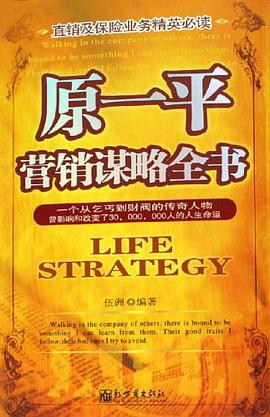

具体描述
For many the name of Adolf Eichmann is synonymous with the Nazi murder of six million Jews. Alongside Adolf Hitler and Henrich Himmler, he is probably the most infamous of the Nazi murderers; unlike them, the aura linked to his name is that of the ultimate evil that may lurk in each and every one of us. This understanding can be attributed above all to Hannah Arendt, and her seminal book, Eichmann in Jerusalem: A report on the Banality of Evil, in which she suggested that Eichmann and many bureaucrats like him never actually realized what they were doing: they were thoughtless rather then consciously evil. By taking this position, Arendt rejected the biblical story of genesis, which sets the ability to distinguish between right and wrong at the very core of being human. Instead, she implied that Eichmann represented a potential face of the future. This book claims that she was wrong. It describes the facts as they appear in the documentation created by Eichmann and his colleagues, and suggests that they fully understood what they were doing. The primary motivating force for their actions was a well-developed acceptance of the tenets of Nazi ideology, of which anti-Semitism was a central component. As far as one is able to determine, after the war not a single one of them ever expressed regret for their actions against the Jews, unless it was regret for having to pay the consequences. These were no run-of-the-mill bureaucrats who merely 'followed orders'.
作者简介
目录信息
读后感
评分
评分
评分
评分
用户评价
这是一部需要反复阅读和查阅参考书目的作品。它的信息密度高得令人眩晕,仿佛每一句话都承载了数份原始档案的重量。与那些聚焦于战场和演讲台的历史著作不同,这本书将焦点精准地对准了行政体系的内部循环——一个由无数中层管理者构成的、默默无闻的齿轮组。作者的贡献在于,他不再将纳粹的成功归结于某种神秘的邪恶力量或希特勒个人的魅力,而是将其解构为一个复杂的、可理解的行政难题的‘解决方案’。书中对不同部门间权力边界的模糊处理、对资源分配的精确计算,都表明了:当官僚机器足够精良时,它对人类的压迫就不需要依赖激情或狂热,只需要依赖例行公事。我读完后产生的巨大疲惫感,源于精神上全程处于高度警觉状态,试图跟上这种近乎百科全书式的资料罗列。这本书无疑是对现代国家行政学的一次黑暗的、极端的案例研究。
评分这本书的叙事腔调非常独特,它仿佛是由一个对历史充满敬畏,却又对人性的弱点感到极度厌倦的学者撰写。语言风格极其克制,几乎没有使用任何带有感情色彩的形容词。它描述了那些被称为‘技术专家’的人——工程师、律师、金融家——是如何精确地将纳粹的种族主义理念转化为可操作的工程蓝图的。最让我印象深刻的是关于‘黄金动员计划’的那一节,书中详尽分析了如何通过一系列复杂的国际金融操作和国内税收调整,将犹太人积累的财富‘合法化’并转移到帝国储备中,整个过程展现出一种令人毛骨悚然的专业主义精神。作者成功地描绘了‘平庸之恶’的运作机制,即那些自诩只是‘服从命令’的专业人士,是如何通过精密的流程管理,构建起一个庞大的、自我运转的反人类机器。我发现自己一边阅读,一边在思考,这种对‘效率’的盲目追求,在任何时代、任何组织中,都是多么危险的诱惑。
评分这本书的结构就像是一座错综复杂的迷宫,你进去后很容易迷失方向,不知道哪条走廊最终会通向真相。作者似乎抱着一种近乎考古学家的态度,将不同时期、不同层级的行政人员的通信、会议纪要和预算申请像碎片一样堆砌在一起。我发现自己不断地在不同章节之间跳转,试图拼凑出一个完整的人事网络图。它不是那种一气呵成的传记,更像是一部被拆解后重组的机械装置说明书。尤其是在探讨‘集中营的经济管理’那一块时,那种将杀戮变成一种成本核算和资源分配过程的冷酷描述,带来的冲击感,远比那些直接描绘暴行的文字要来得深刻和持久。这要求读者必须具备高度的耐心和对细节的忍耐力。它不会直接告诉你‘希特勒是个恶魔’,而是通过展示一群‘称职的’、‘高效的’公务员是如何将这种恶魔般的意图系统化、常态化和可持续化的,从而让你自己得出结论。这本书像是一面镜子,反射出的是制度的惰性与工具理性在特定历史条件下可能产生的灾难性后果。
评分这本书的开篇就展现出一种令人不安的、近乎临床式的冷静。作者似乎对文件和档案的痴迷达到了偏执的程度,他们对魏玛共和国后期到第三帝国初期的官僚体系的描绘,细致入微得让人窒息。我感觉自己不是在阅读历史,而是在翻阅一份份尘封已久的、充满晦涩术语的行政报告。叙事节奏极其缓慢,大量篇幅被用于解释某个部门的职能划分,或者某个次级委员会的设立依据。这种处理方式的好处在于,它揭示了极权主义是如何通过繁复的文书工作和层级结构来渗透社会每一个角落的,权力并非总是通过街头的暴行来体现,更多时候,它是藏在密密麻麻的表格和盖着印章的备忘录里。然而,对于渴望宏大叙事或个人传记的读者来说,这本书可能会是一场煎熬。它几乎没有提及任何‘大人物’的内心挣扎或戏剧性瞬间,一切都围绕着效率、流程和‘如何更好地执行元首的意志’展开。读到后面,我甚至开始对那些拗口的德语官僚术语产生了某种病态的熟悉感,这让我反思,当我们沉浸于这种纯粹的机制描述时,是否也正在无意中被那种冰冷的、非人性的逻辑所麻痹。这种沉浸式的体验是独特的,但绝对不轻松。
评分我必须承认,这本书的学术性非常强,它的论证逻辑严密得像瑞士钟表,但阅读体验却更像是参加一场长达数小时的、关于十九世纪普鲁士行政改革的研讨会。作者对‘法律的合法性’如何被用来服务于非法的目标进行了大量的案例分析。你得时刻紧绷着神经,才能跟上作者在不同法律条文和行政法令之间的跳跃。比如,某一章详细阐述了如何通过修改《帝国公民法》的附属条例,来剥夺特定群体的财产继承权,而整个过程几乎没有引起任何媒体的注意。这种对‘合法外衣’的剥开过程,是我读过的文献中最彻底的之一。但是,这种过于专业的视角也带来了局限性。书中对普通民众的反应、对党卫军的意识形态渗透力,甚至是对抵抗运动的提及都极为简略,似乎一切都只是在‘官僚层’这个封闭的真空里发生。这使得本书更像是一份针对特定历史学家的专业报告,而非面向普通读者的历史普及读物。如果你不是对行政史或法制史有浓厚兴趣,可能很快就会被那些繁复的引文和注释劝退。
评分 评分 评分 评分 评分相关图书
本站所有内容均为互联网搜索引擎提供的公开搜索信息,本站不存储任何数据与内容,任何内容与数据均与本站无关,如有需要请联系相关搜索引擎包括但不限于百度,google,bing,sogou 等
© 2026 book.quotespace.org All Rights Reserved. 小美书屋 版权所有




















